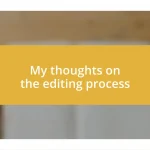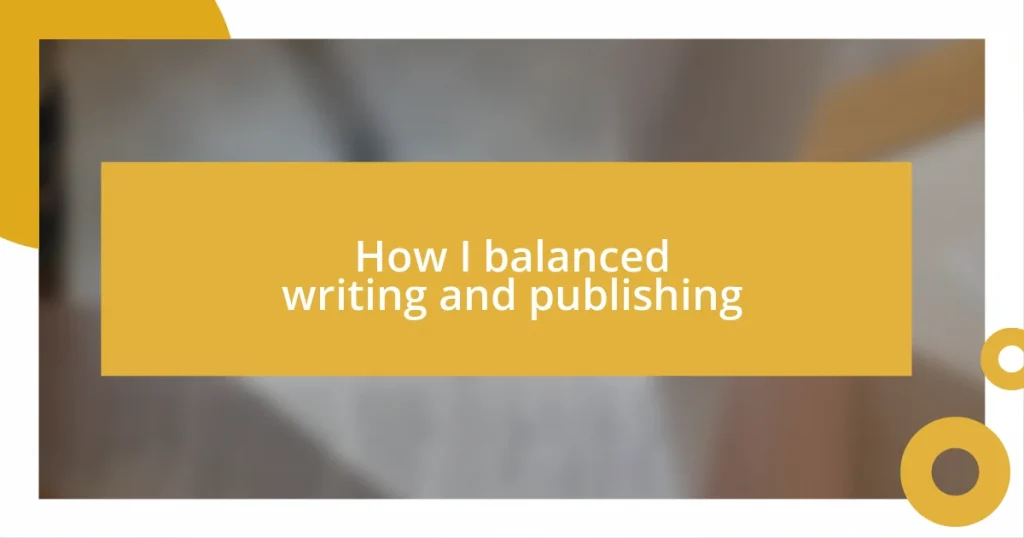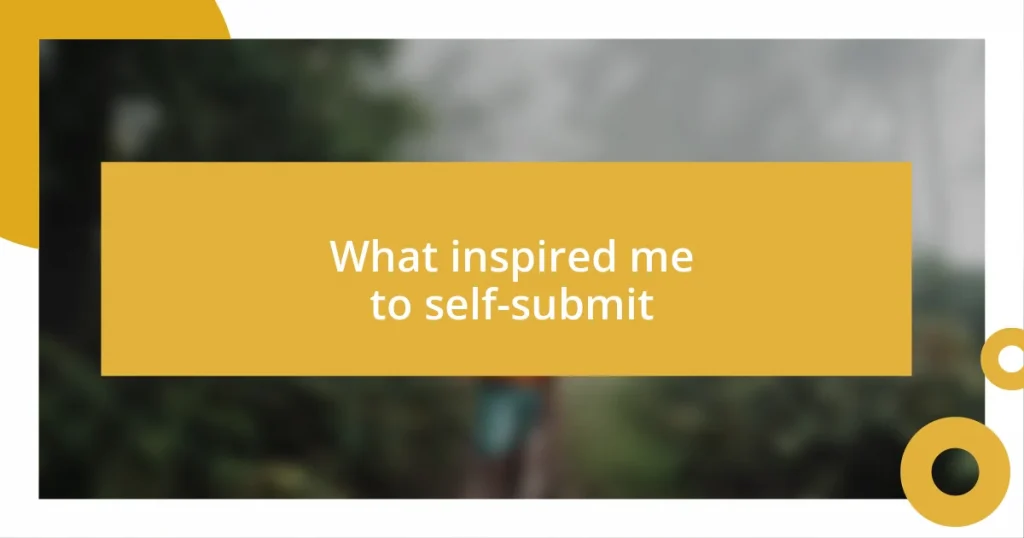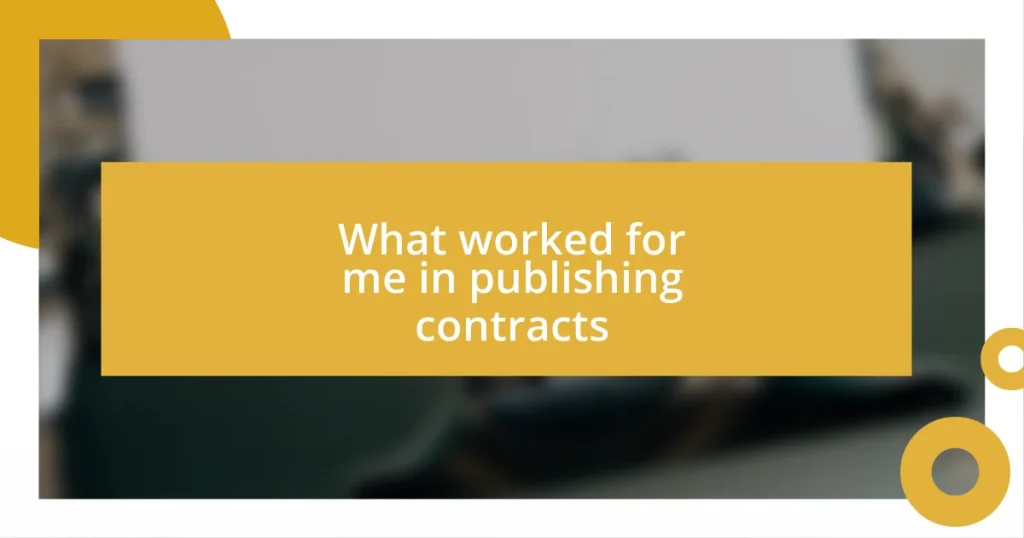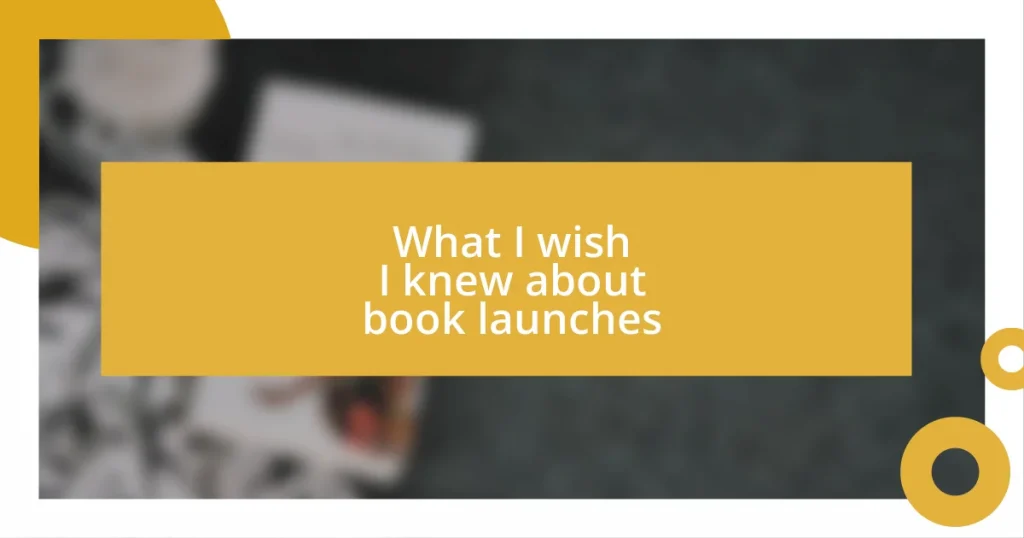Key takeaways:
- Embrace the unique writing process, including messy early drafts and the importance of reflection and revision for creative growth.
- Develop a practical writing schedule with consistency, achievable goals, and flexibility to enhance productivity and creativity.
- Utilize feedback and productivity tools, while celebrating small wins to maintain motivation and improve both writing and publishing journeys.
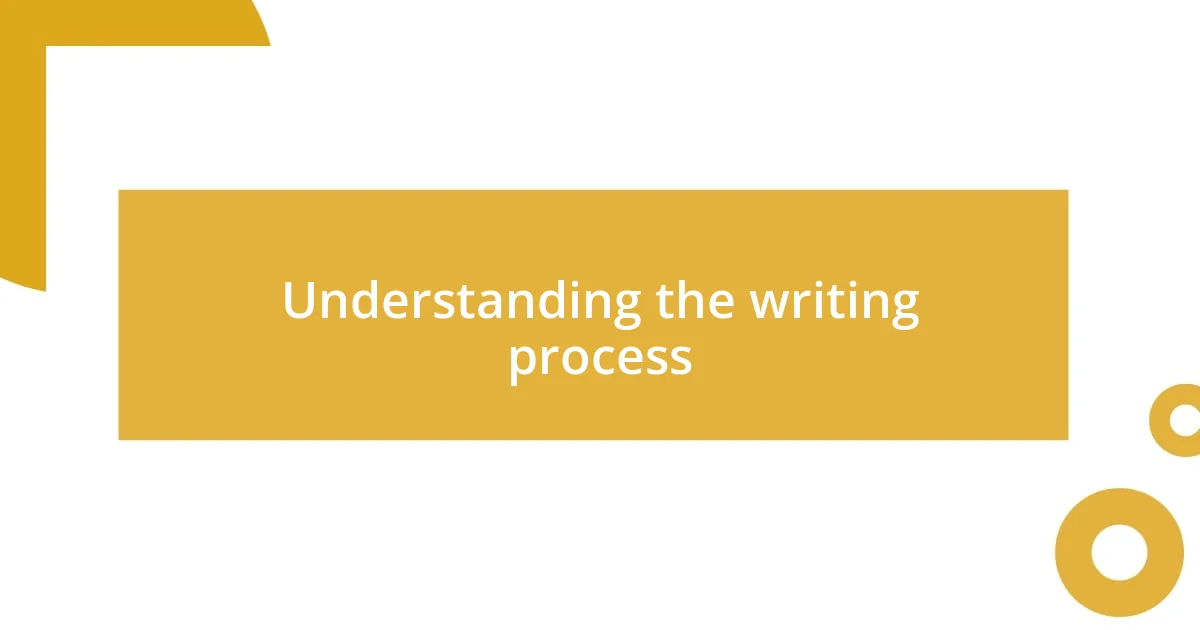
Understanding the writing process
Understanding the writing process starts with recognizing that it’s not a straight line; it’s more of a winding road filled with detours. I remember my first attempt at a novel—it was exhilarating yet overwhelming. I often found myself asking, “Am I doing this right?” The truth is, everyone’s writing journey is unique, and that’s perfectly okay.
As I delved deeper into my writing, I discovered the importance of drafting. My early drafts were messy, full of typos and incoherence, but they also held the raw emotion of my thoughts and ideas. What if I had never allowed myself to create those imperfect drafts? I would’ve missed out on valuable insights and connections that emerged later in the editing phase.
Writing is also a cycle of reflection and revision. After completing a piece, I’d set it aside for a while, allowing my mind to breathe. When I returned, I often noticed aspects that needed adjustment or completely new directions that sparked my creativity. Have you ever experienced the joy of revisiting your work and finding a fresh take? It’s in those moments that the writing process truly transforms, leading to something that feels both authentic and polished.
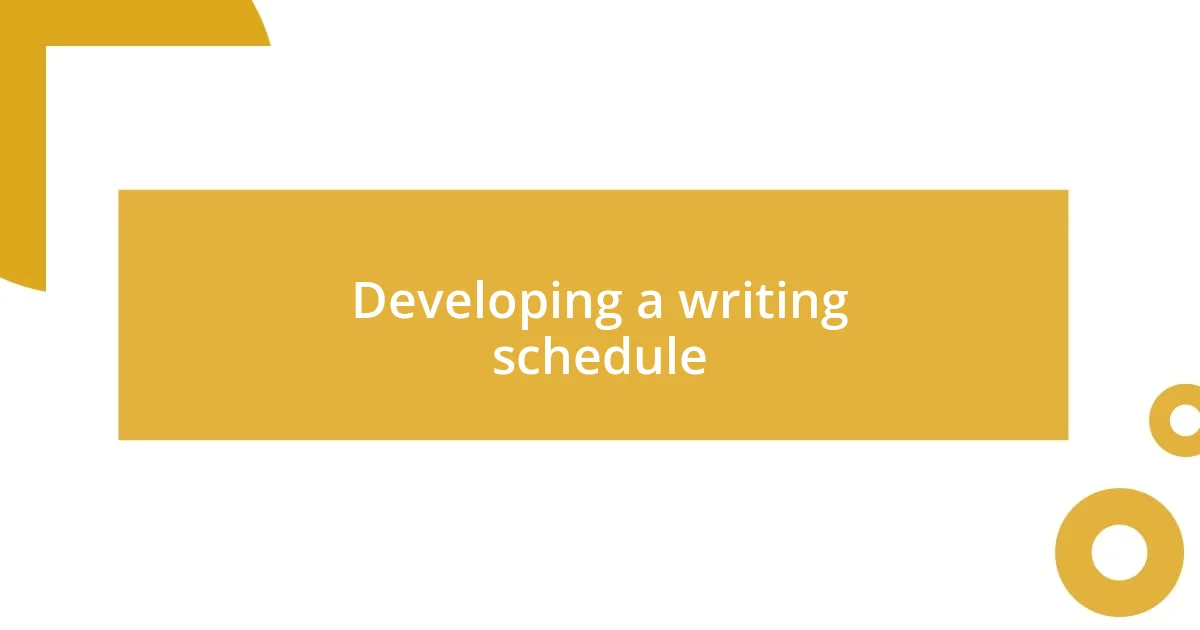
Developing a writing schedule
Creating a writing schedule can feel like a daunting task, but it truly becomes a lifeline. I remember feeling unanchored during my early writing days, often losing track of time and missing precious opportunities to sift through thoughts that were bursting to be on the page. Once I committed to a schedule—setting aside specific times during the week to write—I found that I could dive deeper into my creativity. The key is consistency; when writing becomes part of your routine, those words start to flow more naturally.
To design your own effective writing schedule, consider these elements:
- Block Specific Times: Choose dedicated writing blocks that align with your energy peaks. Are you more inspired in the morning, or do you thrive at night?
- Set Achievable Goals: Instead of overwhelming yourself, aim for smaller accomplishments—for instance, a set number of words or pages each session.
- Include Breaks: Schedule short breaks to recharge. A walk or a quick mindfulness exercise can do wonders for your creativity.
- Be Flexible: Life can be unpredictable. It’s essential to adapt your schedule when necessary without guilt.
- Track Progress: Keep a journal or use apps to track your writing sessions. Seeing your progress can be incredibly motivating.
Remember, this isn’t just about writing; it’s about carving out space for your voice to be heard. I’ve often found that even on days when the words don’t flow, the discipline of showing up to write allows my mind to simmer with ideas, creating an undercurrent of inspiration that bubbles to the surface at unexpected times.
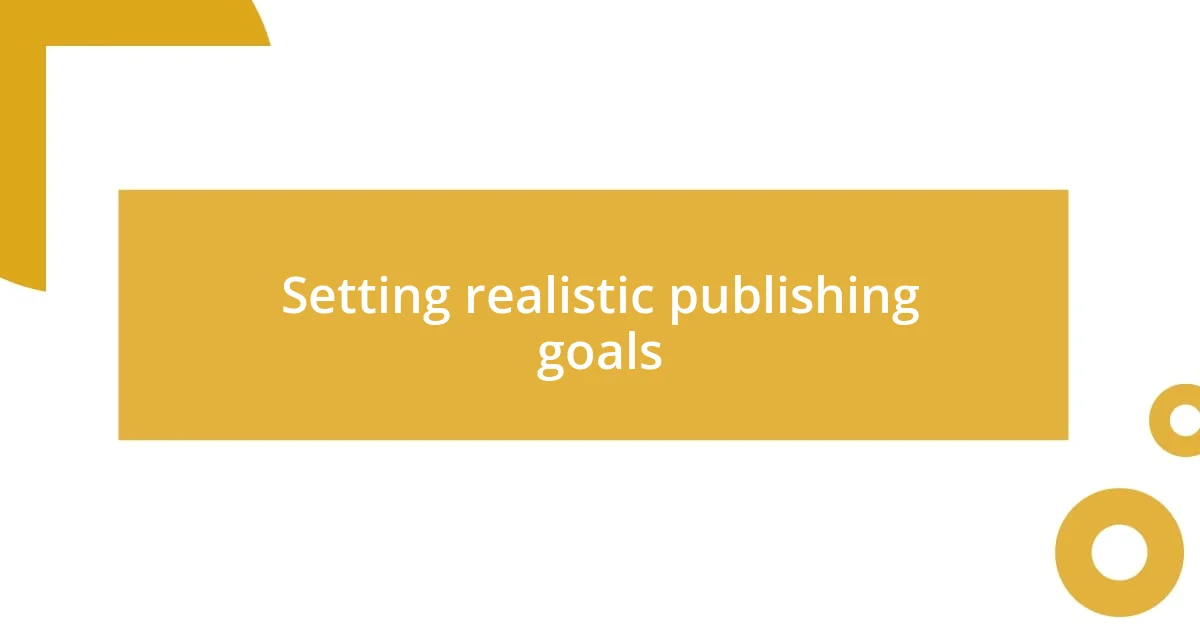
Setting realistic publishing goals
Setting realistic publishing goals is essential for any writer aiming to share their work with the world. I recall my first time setting a deadline for myself to publish a short story. I was overly ambitious and ended up feeling stressed and discouraged. I learned that my goals needed to be not just aspirational but also attainable, factoring in my writing speed and time constraints. This shift in mindset made a significant difference in how I approached my work.
When I talk about realistic goals, I often emphasize the importance of breaking down larger objectives into smaller, manageable tasks. For example, if you aim to publish a novel in a year, start by setting milestones like completing your first draft in six months or finishing a chapter each week. Each small win not only boosts motivation but also provides clarity on the overall journey. I’ve found that celebrating these incremental achievements fosters a positive mindset.
Lastly, it can be helpful to consider external factors such as editing, feedback loops, and marketing strategies within your publishing goals. I remember feeling overwhelmed when I realized my book needed a thorough review before submission. By incorporating these steps into my timeline, I created a well-rounded plan that kept me grounded and organized. What’s interesting is that setting realistic goals has not only enhanced my productivity but also enriched my creative process, allowing me to enjoy writing rather than merely rushing towards publication.
| Goal Type | Description |
|---|---|
| Short-Term Goals | Daily/weekly writing targets, like word count or chapters completed |
| Mid-Term Goals | Draft completion targets, typically set for months |
| Long-Term Goals | Publication milestones, including submissions and deadlines |
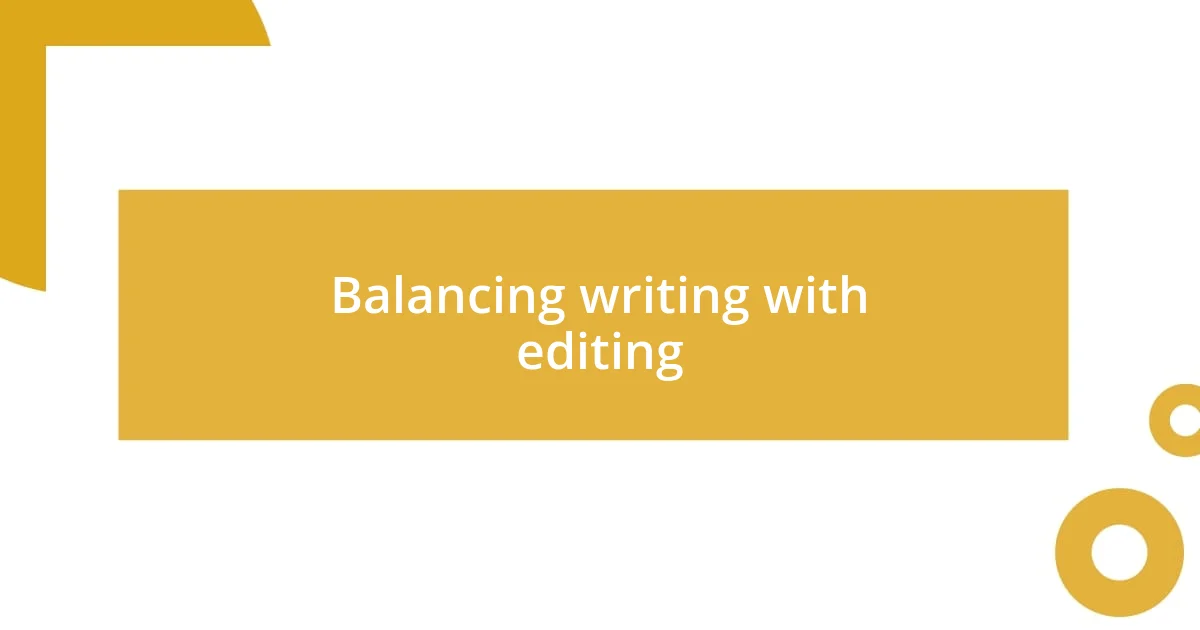
Balancing writing with editing
Finding the right balance between writing and editing has been one of my more interesting challenges. I remember one specific instance where I poured my heart into a draft, only to realize I had barely skimmed the surface of what needed to be refined. It was frustrating, but I learned that dedicating time to separate writing from editing was crucial. Why? Because when I constantly intertwined the two, I often stifled my creativity. Allowing myself to write freely first opened up spaces for authentic storytelling, which the editing phase could then polish.
I’ve found it beneficial to block out specific time just for editing, treating it as a different creative endeavor. On editing days, I approach my work with fresh eyes, sometimes even letting a few hours pass after writing. It’s fascinating how stepping away can change your perspective. I remember one afternoon diving into my edits with newfound clarity, realizing that something I once thought was brilliant just needed to be cut. This method also lets me view my writing as a reader would, making it easier to identify what works and what doesn’t. Isn’t it amazing how different lenses can reshape our understanding of our own work?
During this balancing act, I often remind myself that both writing and editing serve unique purposes in my creative process. Some days, I feel more like a sculptor than a writer, chiseling away the excess to reveal the core of my narrative. I genuinely believe that if we give ourselves permission to explore freely while carving out time for critical evaluation, the final product shines even brighter. Have you ever experienced that sense of joy when something you once struggled with suddenly clicks during an edit? It’s a rewarding feeling that highlights the importance of this delicate balance.
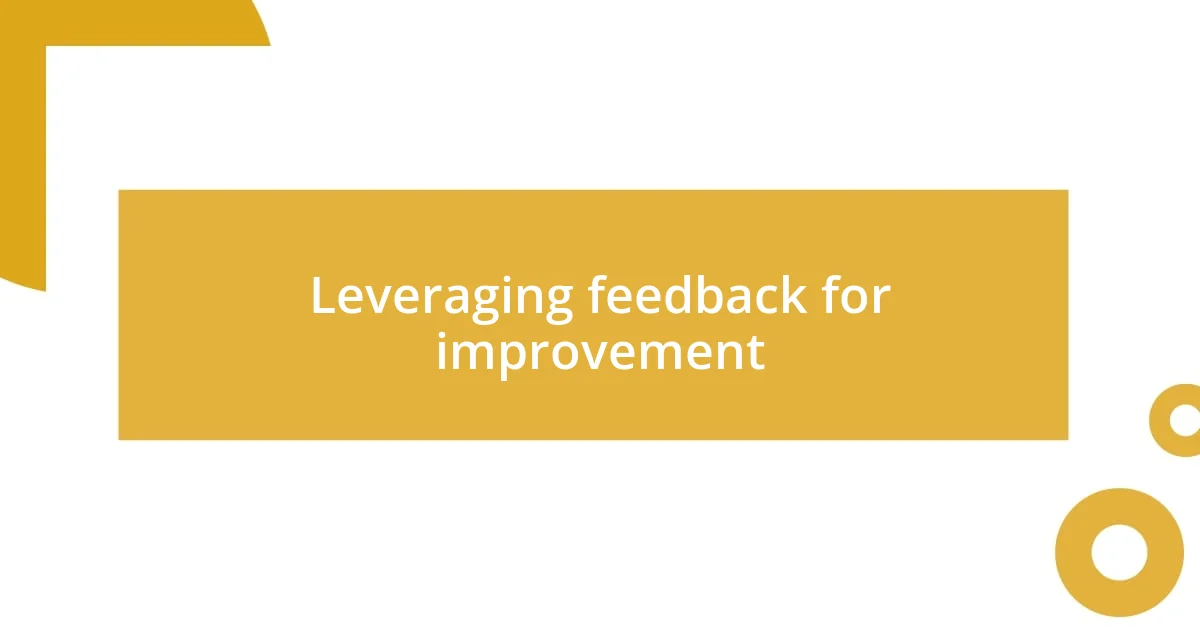
Leveraging feedback for improvement
Feedback is a powerful tool for any writer looking to improve their work. I remember the first time I shared my manuscript with a trusted friend. Their thoughtful critiques stung a bit, yet I realized they were spot on. It was a moment that taught me the value of an outside perspective—one that can pinpoint flaws I was too close to see. Have you ever received feedback that made you rethink your approach?
In my experience, creating a safe space for feedback has been transformative. I often approach writing groups or beta readers with an open heart, ready to absorb their insights. Once, during a workshop, someone highlighted a character’s lack of clarity—it was an eye-opener. It pushed me to dive deeper into their motivations and backstory. When we embrace constructive criticism, we unlock new levels of depth and authenticity in our narratives.
Moreover, not all feedback is created equal. I’ve had to learn to sift through opinions and focus on the constructive ones that resonate with my vision. Remember the comment that felt like a blow? It was also sometimes where the most growth occurred! I’ve come to appreciate feedback as a collaborative dance rather than a harsh judgment. The right feedback can elevate our work, turning tentative drafts into polished gems. How do you approach feedback? Your journey might just lead to a breakthrough moment like mine.
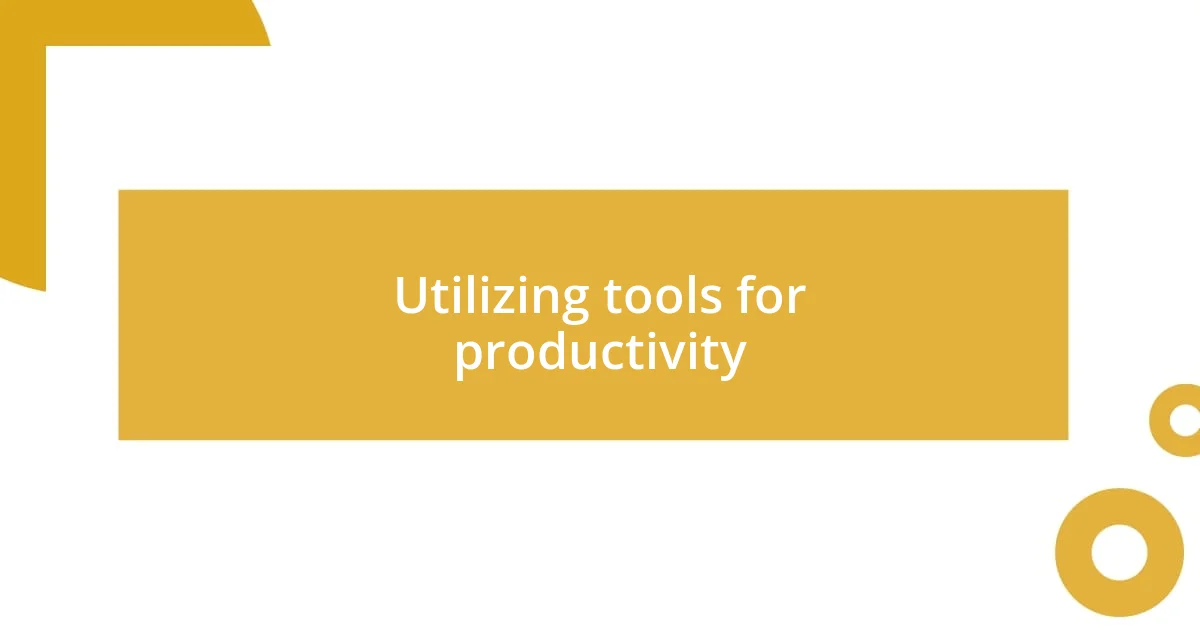
Utilizing tools for productivity
Utilizing productivity tools has been a game-changer for me in balancing writing and publishing. I remember the first time I discovered a project management app that allowed me to visualize my writing tasks. Suddenly, I could see my entire workflow laid out in front of me, which reduced my anxiety. Have you ever felt overwhelmed by the sheer volume of tasks? I certainly have, and tools like these clear the clutter and help me prioritize what’s truly important.
Time-blocking software has also significantly improved my efficiency. By setting specific time slots for writing, I give myself permission to focus without distractions. Just the other day, I set my timer for a 45-minute writing sprint, and it felt liberating to dive into my words without the nagging feeling that I should be doing something else. I was amazed at how much I accomplished—do you ever experience that rush when you’re in the zone? It’s an exhilarating moment that reminds me why I love writing.
Another tool that works wonders for me is voice-to-text software. There are days when sitting down to type feels daunting, but speaking my thoughts often turns into a surprising flow of ideas. I remember a late-night session where I simply talked through a scene, and what emerged was both raw and powerful. Have you considered how your voice might unlock your creativity? It’s remarkable how these technological aids can enhance our writing experience and keep us productive, reminding us that creativity doesn’t have to be a solitary endeavor.
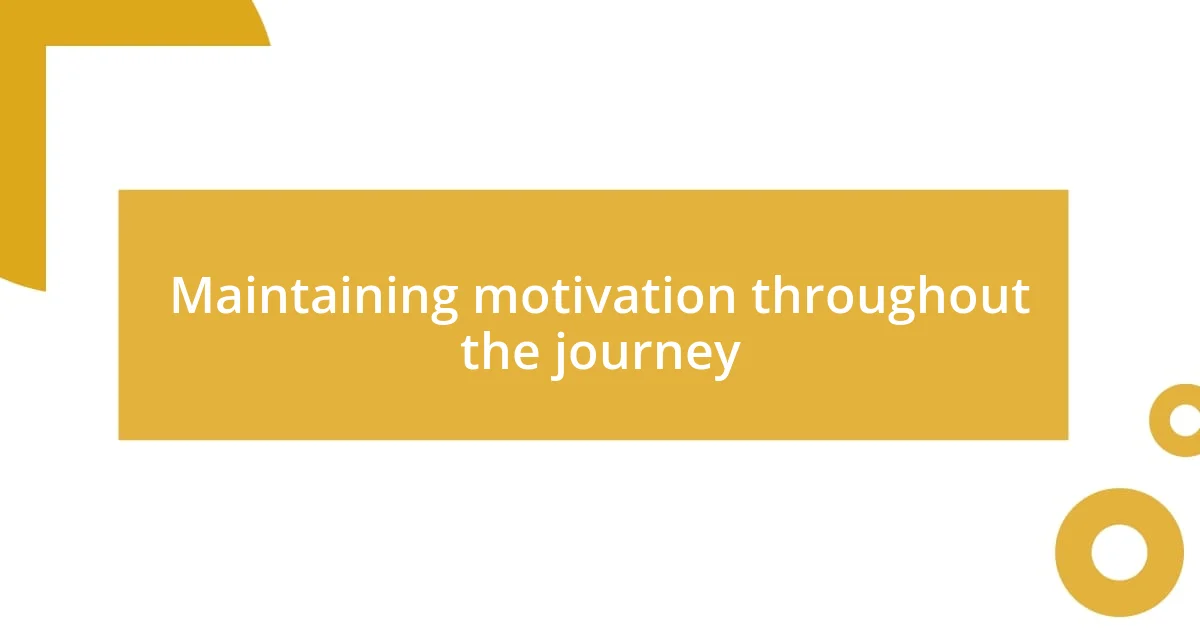
Maintaining motivation throughout the journey
Staying motivated throughout the writing and publishing journey can sometimes feel like climbing a steep hill. I remember one particularly challenging week when every word felt like pulling teeth. I stumbled upon my favorite playlist, and suddenly, I was transported back to a euphoric moment when I completed my first draft. It reminded me of why I started this journey in the first place. What fuels your motivation during tough times?
There have been days when doubt crept in, making it hard to keep going. During one such phase, I joined an online writers’ community. The support and shared stories reignited my passion. I realized that motivation isn’t solely an individual endeavor; it thrives in community. Have you ever felt the difference when surrounded by like-minded individuals? It can be invigorating to witness peers celebrating their victories and pushing through their struggles.
To avoid burnout, I began celebrating the small wins—like finishing a chapter or even just reaching my word count goal for the day. I remember the thrill of rewarding myself with a cozy evening on the couch after achieving my daily target. Those little celebrations remind me to appreciate my progress, however small. How do you treat yourself during your writing journey? It’s these moments of joy that can keep our spirits high and our creativity flowing.






